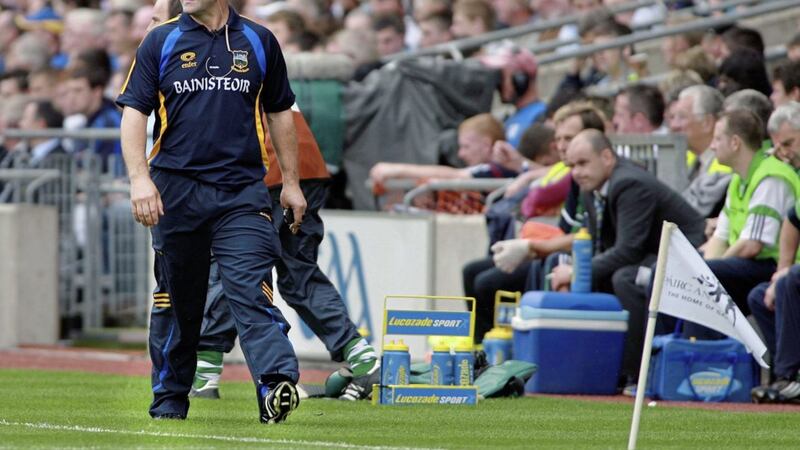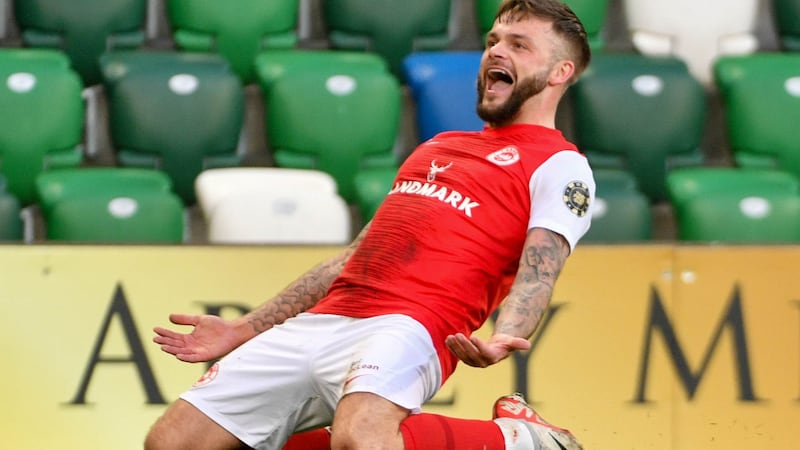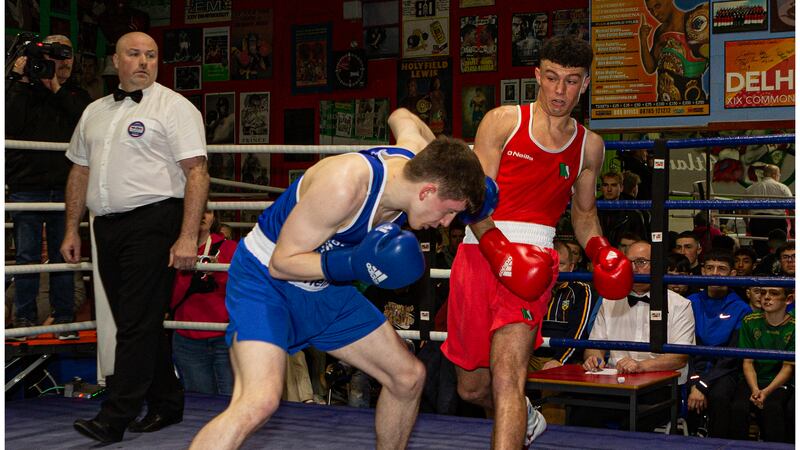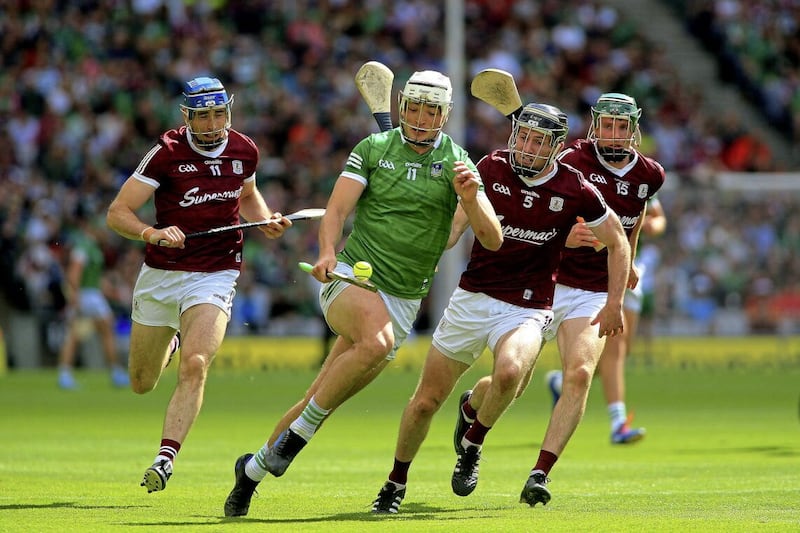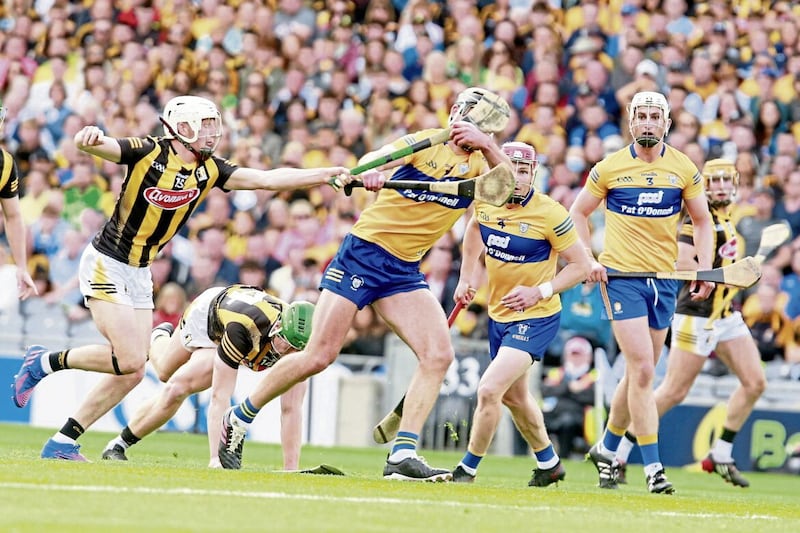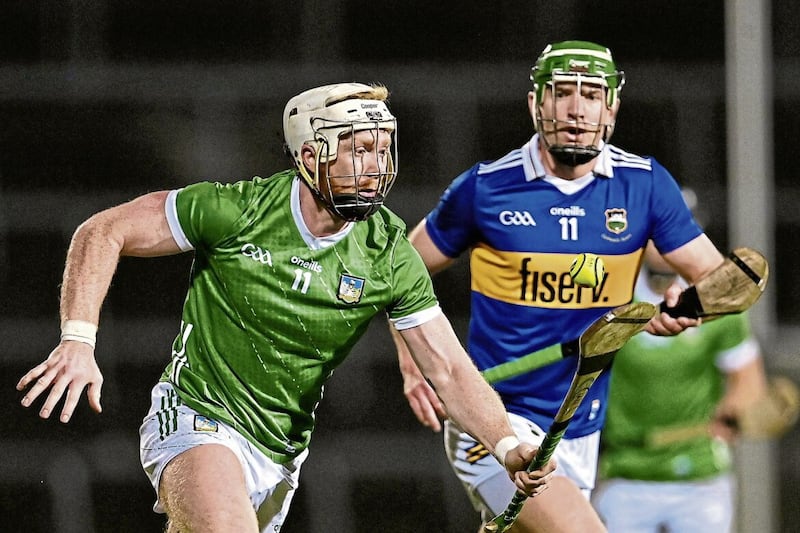THE scoreline at the end of last Saturday’s Tipperary-Waterford All-Ireland quarter-final, which Waterford won by seven points, was an imposter. The game looked over before veering in a different direction and then jack-knifing in a heart-beat.
Waterford led by eight points with eight minutes of normal time remaining, but Tipp went into full-attack mode and chased the game down with a flurry of points. The margin was down to three with 90 seconds remaining when a John McGrath rocket was brilliantly stopped by Shaun O’Brien.
From the resultant puckout, Neil Montgomery got inside the Tipp cover and scored a brilliant goal. Tipp were concussed and staggering and points from Montgomery and Colin Dunford knocked them out cold before they knew it. Gone in 90 seconds.
The ending to the Clare-Cork game a week earlier had almost been more dramatic. Clare trailed by five points with just 90 seconds of injury time remaining when Tony Kelly was hauled down for a penalty, which he buried. As soon as the ball hit the net, Kelly put his arm in the air and made a clear gesture to the rest of his team-mates which had a simple translation. ‘Win the puckout and get it straight back into me.’
Clare did. Diarmuid Ryan launched the ball straight back down on top of Kelly, who arced away from the pack underneath the ball. Aidan McCarthy won the break and slipped the ball inside to Kelly. Before Cork knew what was happening, Kelly was lining up a shot just two metres outside the square. Everyone was expecting the net to bulge but Pa Collins made an incredible save.
The margins have never been tighter in this Championship. The turning point in Kilkenny’s season came in the dying moments of their Leinster semi-final against Wexford. Liam Ryan’s 74th minute equalising point took the match to extra-time but the ball ended up in the net after Eoin Murphy took it down from going over the crossbar and Conor McDonald flicked it back past Murphy.
A goal at that stage would have won the match for Wexford but the decision went to Hawk-Eye, which showed that the ball had marginally cleared the bar before Murphy made the play. Wexford were blitzed in extra-time and were gone out of the championship two weeks later after losing to Clare. Fine margins.
Limerick were devastating in the second-half of the Munster final, but would they have been able to ignite a comeback at ten points down if Aaron Gillane had been sent off for striking Cathal Barrett? Limerick would have had to realign their team and play a full second half without their main out-ball option up front. A few minutes later, Gillane engineered Seamus Flanagan’s goal, which reduced the margin to five points, and really launched Limerick’s relentless charge.
Even when Gillane did stay on the field, Tipp could still have changed the course of that match immediately afterwards. From the resultant free, Sean Finn lost the ball in the sun and Jake Morris swiped a loose shot just wide. Would 13 points have been much of a margin for Limerick to chase down? Without Gillane, it almost certainly would have been.
It hasn’t been as dramatic but there have been shades of the brilliant 2018 Championship which was heavily defined by the hunter and hunted analogy, where hunting down substantial leads was one of its most common trends; in 11 games that summer, one team chased down a huge lead and reeled the opposition in, or else almost did.
This Championship hasn’t been as dramatic as the 2018 and 2019 campaigns but it has been different because of a renewed focus shift towards scoring goals.
Last year’s final was the first goalless All-Ireland final since 2004 but Limerick’s points total in that final (30) was four points greater than what Cork and Kilkenny accumulated together (26) in that 2004 final.
That was a reflection of where the game has gone but the lack of green flags was also an accurate barometer of the decreasing number of goals in inter-county hurling. The average had fallen to 2.41 goals per game last year, which was the lowest in history.
By 2017, the number held at just above three. In 2018 though, it dropped to 2.83, while it had decreased to 2.46 in the 2019 championship. However, so far in 2021, the goal rate has spiked up to its highest number in almost three decades, with an average of 3.68 goals per game.
The weather and the wintry conditions were an obvious factor in last year’s drop, which was all the starker again when the minutiae of the detail is examined; of the 41 goals scored in the 2020 championship, 25 of those green flags were raised in just five games; if you exclude those five matches, the average in the other 12 Championship matches was just 1.3 goals per game; in the 17 matches played, a team failed to score a goal on 13 occasions.
A summer Championship was always going to change the dynamic. The new penalty/sin-bin rule has also encouraged more goals but there has already been a clear change in the mindset around goals; to date there have already been 59 goals in just 16 games, 18 more than were scored in the entire 2020 championship. In those 16 games, there were only three occasions when a team failed to register a green flag.
The flipside though, is that the points total has still remained as high as ever; there has only been five occasions when a team didn’t breach the 20-point (white flags) barrier; the 25-point threshold has been passed on 12 occasions, with the 30-point mark already surpassed four times.
It has been a good Championship so far and now Cork and Kilkenny and Limerick and Waterford go head-to-head for a place in the final this weekend.
Limerick and Kilkenny are favourites to advance, but Kilkenny will have to deal with Cork’s searing pace and Limerick are facing a Waterford team surfing huge waves of confidence and momentum after taking out Galway and Tipp.
And as the fine margins have already shown this year, anything is always possible in hurling.
